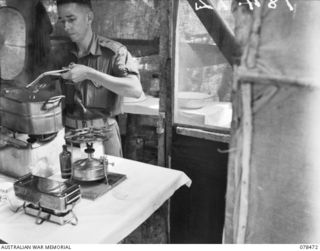The Evolution of Cooperation on Bougainville: A study of the theory of cooperation and the Bougainville peace process during the decade 2001 - 2010
- Description:
- Between 1988 and 1998 Papua New Guinea and Bougainville were engaged in a violent and destructive civil war, resulting primarily from the economic and environmental consequences stemming from mining on Bougainville, as well as historic economic, ethnic and political cleavages. A ceasefire in 1998 set into motion the Bougainville peace process. This thesis aims to test the theory of cooperation,...
- Display date:
- 2015
- Location:
- Papua New Guinea
- Format:
- Thesis
- Collections:
- UC Research Repository
- Publisher:
- University of Canterbury. Political Science
- Content partner:
- University of Canterbury Library
- Availability:
- Not specified
-
Copyright status: All rights reservedFind out more about what you are able to do with this itemThis item is all rights reserved, with means you'll have to get permission from University of Canterbury Library before using it. For more information, please see our use and reuse page.More informationUniversity of Canterbury Library has this to say about the rights status of this item:
Copyright Matthew Fanselow
What can I do with this item?Non-infringing useNZ copyright law does not prevent every use of a copyright work, and this item may be hosted by an international institute or organisation. You should consider what you can and cannot do with a copyright work.No sharingYou may not copy and/or share this item with others without further permission. This includes posting it on your blog, using it in a presentation, or any other public use.No modifyingYou are not allowed to adapt or remix this item into any other works.No commercial useYou may not use this item commercially.
Related items
Welcome and warm Pasifik greetings
The information on this site has been gathered from our content partners.
The names, terms, and labels that we present on the site may contain images or voices of deceased persons and may also reflect the bias, norms, and perspective of the period of time in which they were created. We accept that these may not be appropriate today.
If you have any concerns or questions about an item, please contact us.

